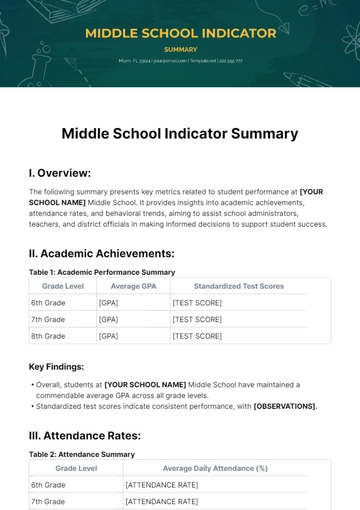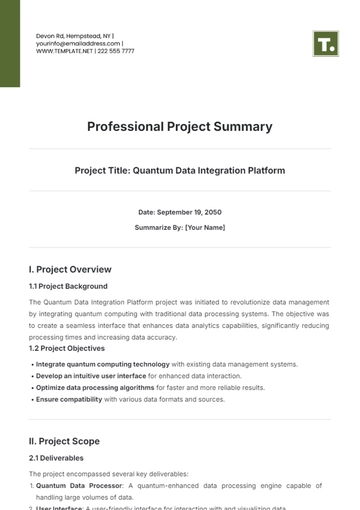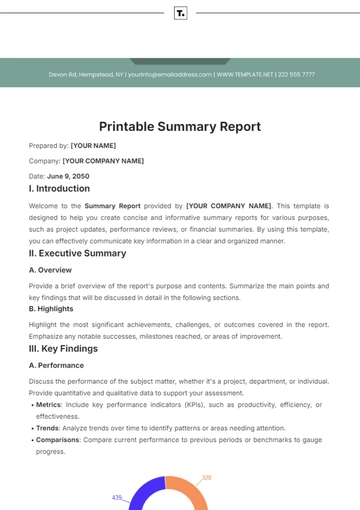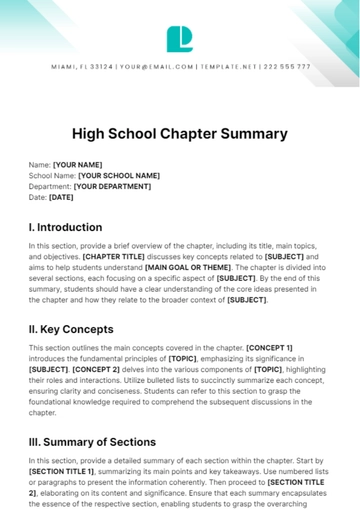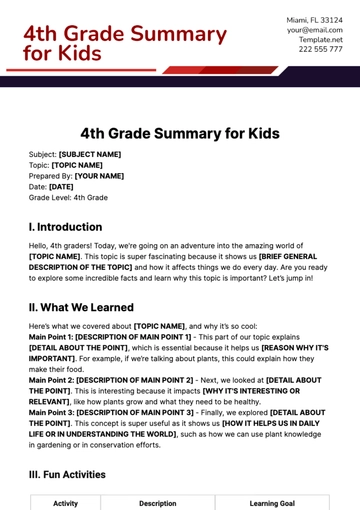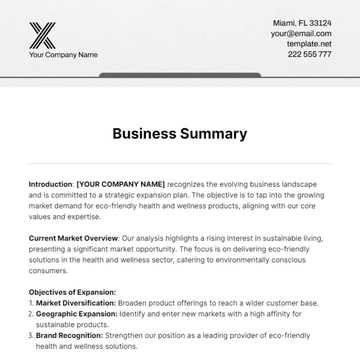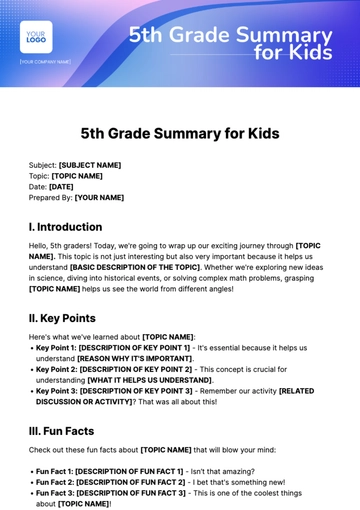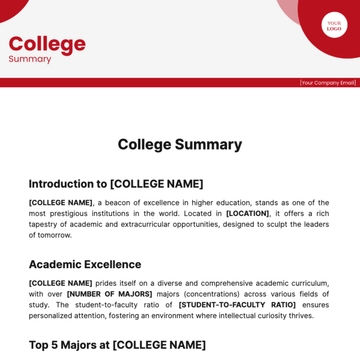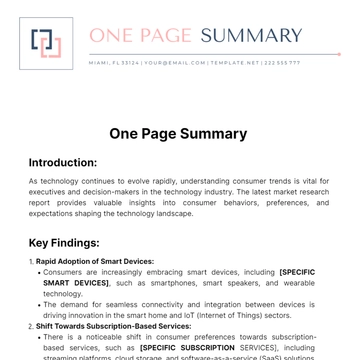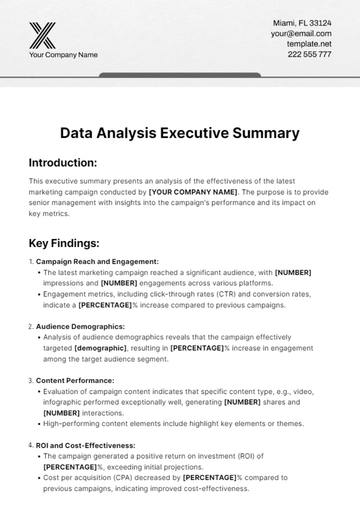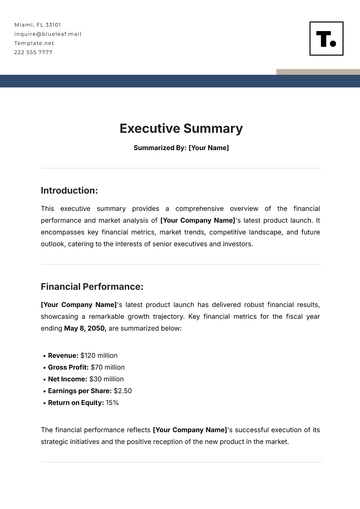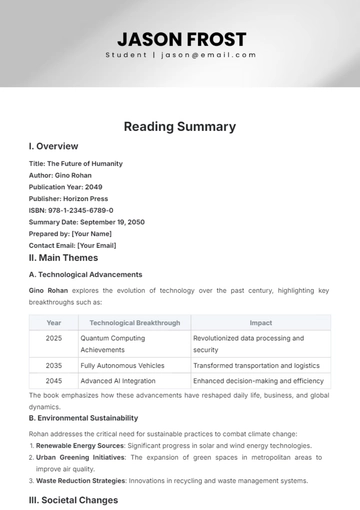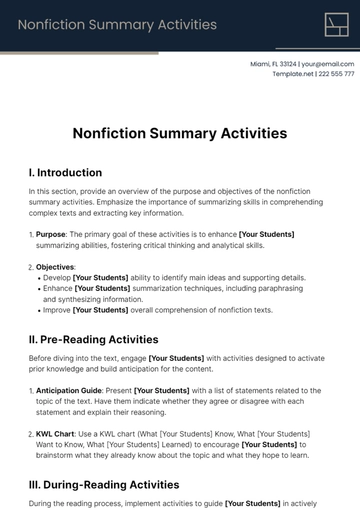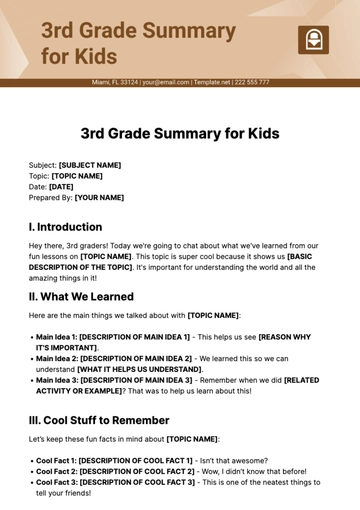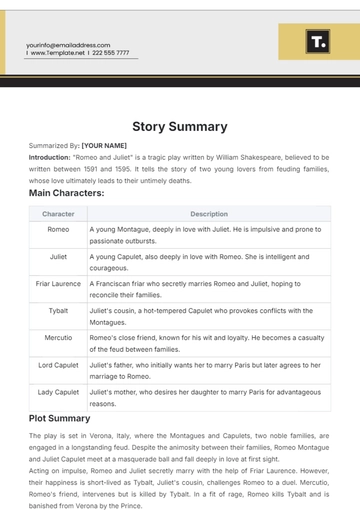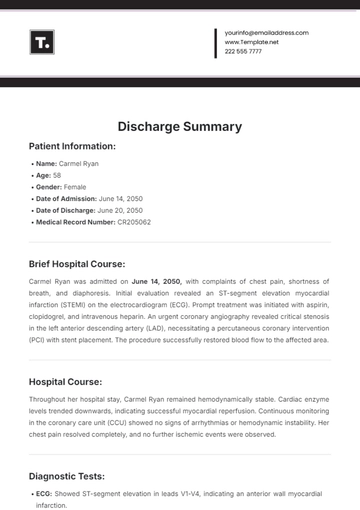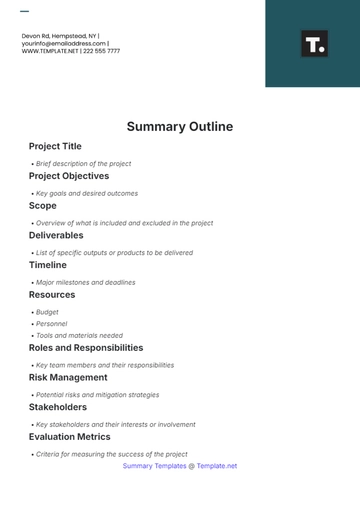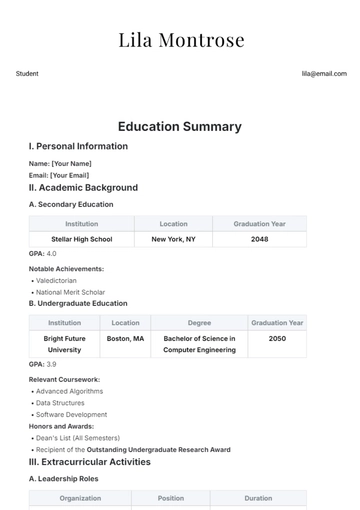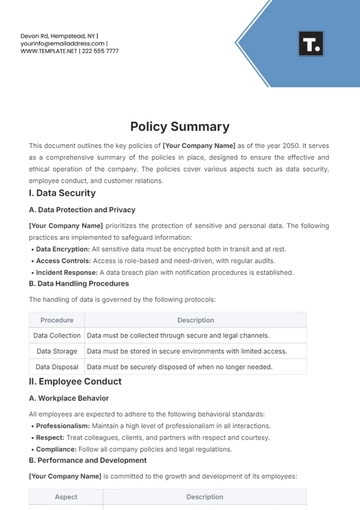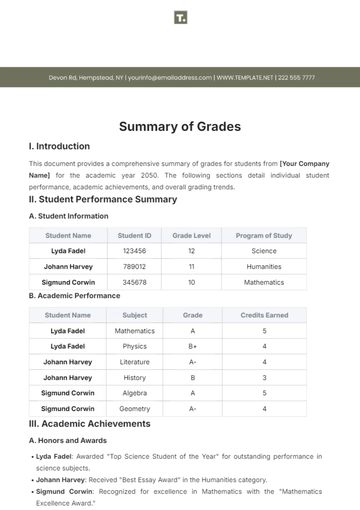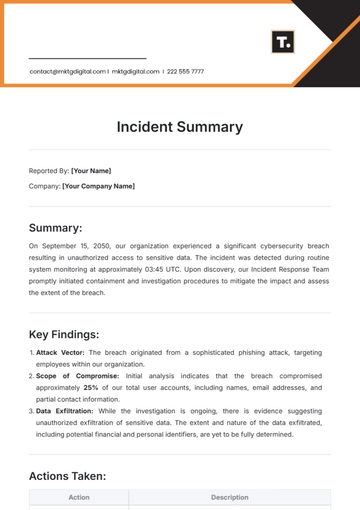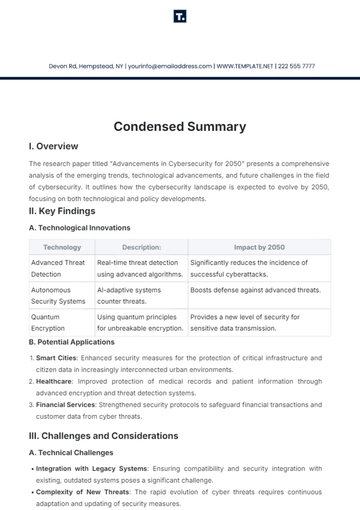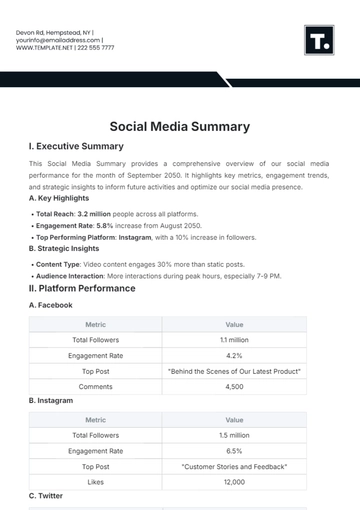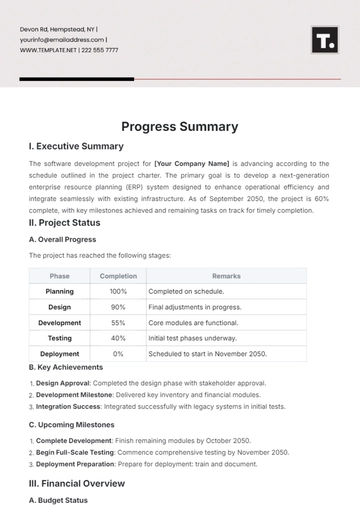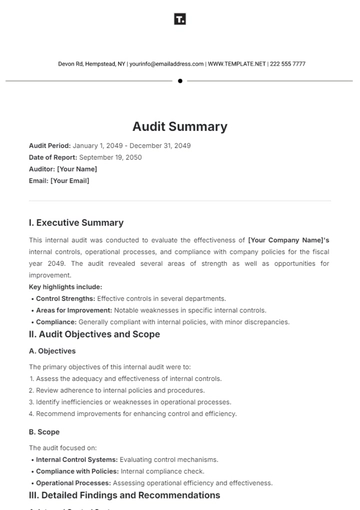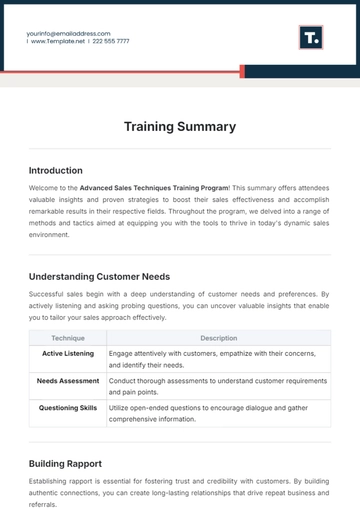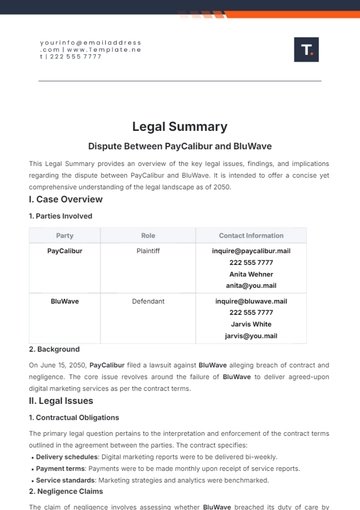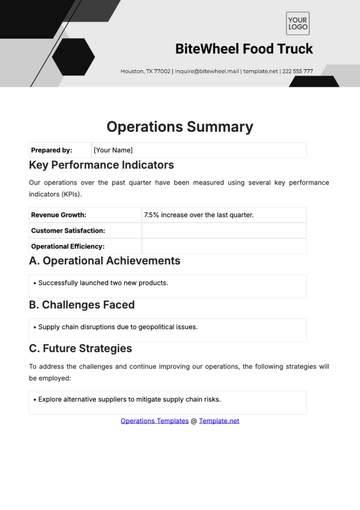Free Newborn Discharge Summary
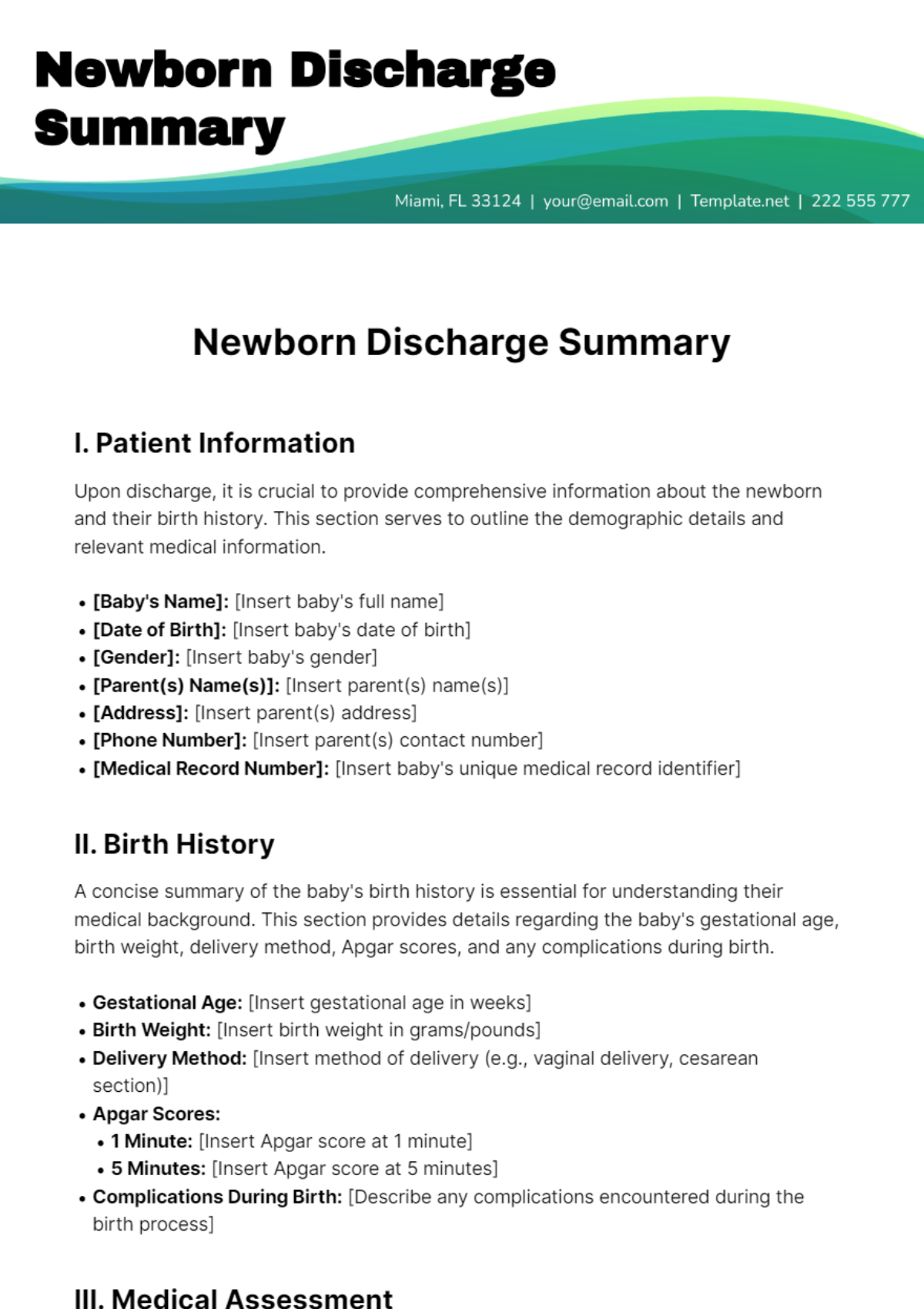
I. Patient Information
Upon discharge, it is crucial to provide comprehensive information about the newborn and their birth history. This section serves to outline the demographic details and relevant medical information.
[Baby's Name]: [Insert baby's full name]
[Date of Birth]: [Insert baby's date of birth]
[Gender]: [Insert baby's gender]
[Parent(s) Name(s)]: [Insert parent(s) name(s)]
[Address]: [Insert parent(s) address]
[Phone Number]: [Insert parent(s) contact number]
[Medical Record Number]: [Insert baby's unique medical record identifier]
II. Birth History
A concise summary of the baby's birth history is essential for understanding their medical background. This section provides details regarding the baby's gestational age, birth weight, delivery method, Apgar scores, and any complications during birth.
Gestational Age: [Insert gestational age in weeks]
Birth Weight: [Insert birth weight in grams/pounds]
Delivery Method: [Insert method of delivery (e.g., vaginal delivery, cesarean section)]
Apgar Scores:
1 Minute: [Insert Apgar score at 1 minute]
5 Minutes: [Insert Apgar score at 5 minutes]
Complications During Birth: [Describe any complications encountered during the birth process]
III. Medical Assessment
An assessment of the baby's medical condition during the hospital stay is vital for ensuring proper post-discharge care. This section outlines the baby's overall health status, including vital signs, feeding patterns, and any medical interventions received.
Vital Signs:
Temperature: [Insert baby's temperature]
Heart Rate: [Insert baby's heart rate]
Respiratory Rate: [Insert baby's respiratory rate]
Oxygen Saturation: [Insert baby's oxygen saturation level]
Feeding Patterns:
[Describe the baby's feeding method (e.g., breastfed, formula-fed) and frequency]
Medical Interventions:
[List any medical interventions administered during the hospital stay]
IV. Follow-up Care
Ensuring appropriate follow-up care post-discharge is essential for monitoring the baby's health and development. This section provides instructions for follow-up appointments, vaccinations, feeding guidelines, and signs of concern requiring immediate medical attention.
Follow-up Appointments:
[Provide details of scheduled follow-up appointments with the pediatrician or healthcare provider]
Vaccinations:
[Specify the recommended vaccination schedule for the baby]
Feeding Guidelines:
[Offer guidance on feeding frequency, quantity, and introduction of solids]
Signs of Concern:
[Highlight symptoms or signs indicating a need for immediate medical attention]
V. Discharge Instructions
Clear and concise discharge instructions empower parents or caregivers to provide optimal care for the newborn at home. This section includes guidance on feeding, hygiene, sleep, temperature regulation, and when to seek medical assistance.
Feeding Instructions:
[Provide guidance on breastfeeding, formula feeding, or combination feeding]
Hygiene Practices:
[Recommendations for bathing, diaper changing, and skin care]
Sleep Guidelines:
[Advice on establishing a sleep routine and safe sleep practices]
Temperature Regulation:
[Tips for maintaining appropriate room temperature and dressing the baby]
Medical Assistance:
[Indicate when to contact a healthcare provider for concerns or emergencies]
VI. Conclusion
In conclusion, this newborn discharge summary template aims to provide comprehensive guidance for the care of the newborn following discharge from the hospital. By addressing key aspects such as [Patient Information], [Birth History], [Medical Assessment], [Follow-up Care], and [Discharge Instructions], it facilitates seamless transition to home care while ensuring the baby's health and well-being are prioritized.
Summarized By: [YOUR NAME]
- 100% Customizable, free editor
- Access 1 Million+ Templates, photo’s & graphics
- Download or share as a template
- Click and replace photos, graphics, text, backgrounds
- Resize, crop, AI write & more
- Access advanced editor
Introducing the Newborn Discharge Summary Template, exclusively from Template.net. This editable and customizable resource simplifies newborn discharge procedures with precision. Craft tailored summaries effortlessly with our AI Editor Tool. Ensure seamless transitions for newborns and their families with this user-friendly template, designed to meet your unique needs.
